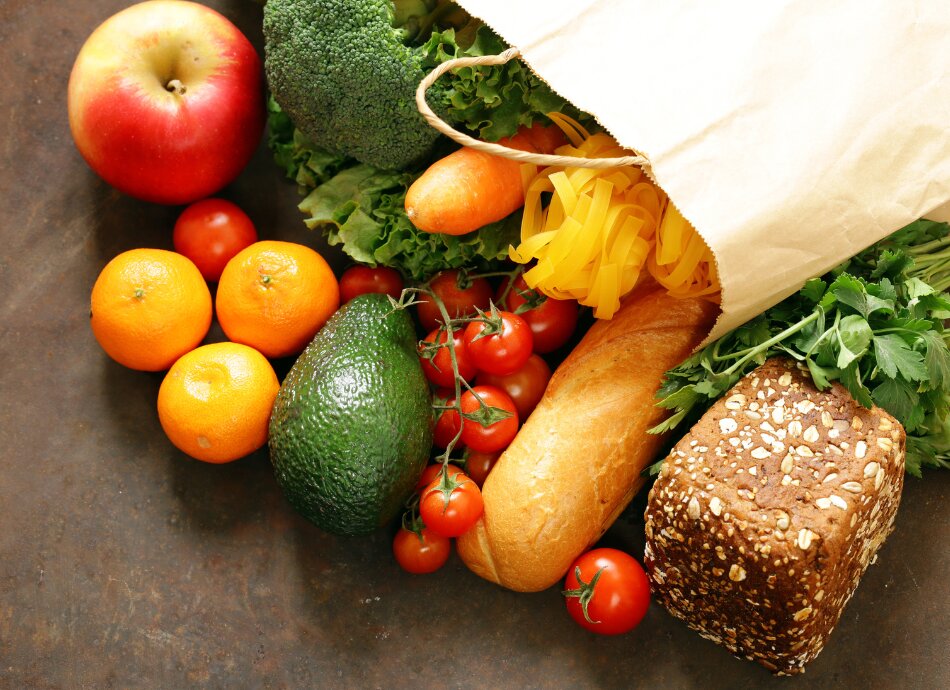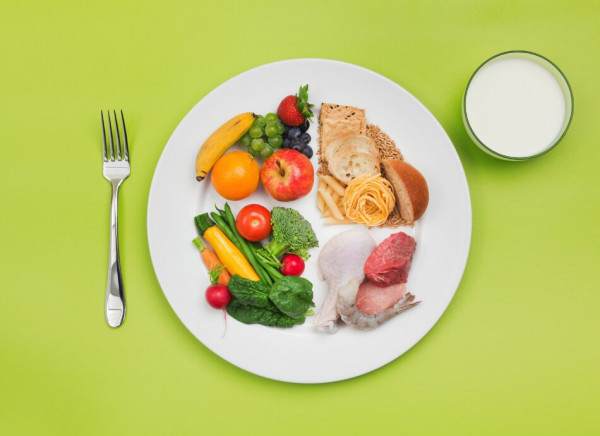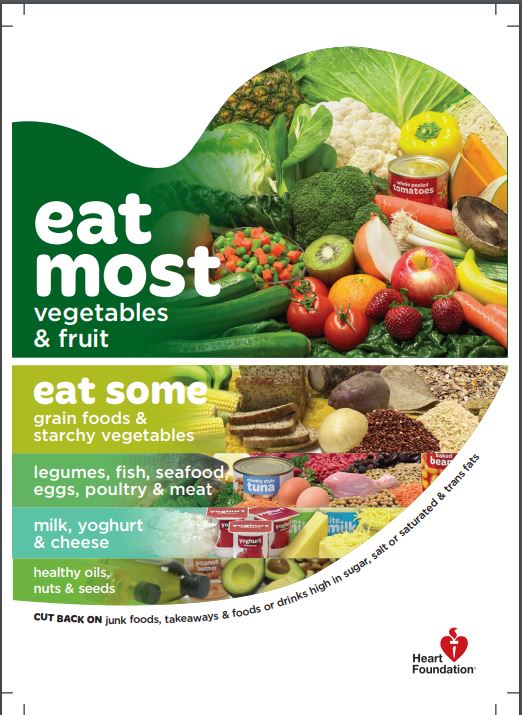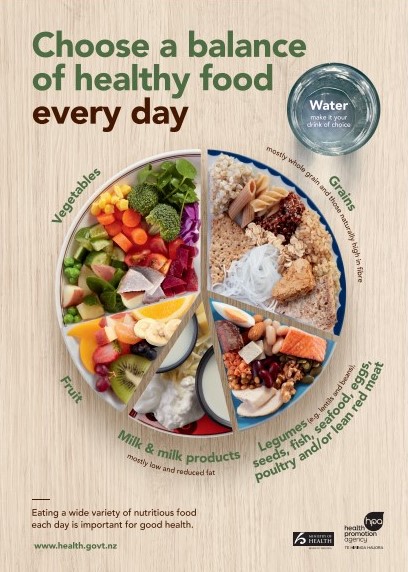Wishing everyone a safe and happy Christmas and New Year – Meri Kirihimete from the Healthify team.
Nutrients
Key points about nutrients
- Food and drinks are made up of a range of nutrients that you use for energy, growth and maintaining healthy tissues. Good nutrition helps you to function well physically and mentally.
- Nutrition is the study of nutrients and the way we process them.
- Nutrients fall into 2 main categories – macronutrients (which we need in relatively large amounts) and micronutrients (which are mostly needed in small amounts).

Macronutrients make up the bulk of our diet and are mainly involved in the supply of energy, but they're also responsible for other activities.
Macronutrients include:
- grain foods
- proteins (including essential amino acids)
- fats or lipids (including essential fatty acids).
Micronutrients are substances we must get in small quantities from our diet, either because we can’t make them for ourselves or because we can't make them as fast as we need them. They are not an energy source, but are needed in the process of creating energy.
Micronutrients include:
- vitamins, which are organic compounds (made from carbon)
- minerals, which are inorganic (not made from carbon).
Read more about vitamins and minerals.
Nutrients are classed as essential or non-essential. Non-essential nutrients are ones your body can make itself, although they may also come from the diet. Essential nutrients, however, are ones that we can’t make for ourselves in sufficient quantities to meet our needs, so they must be obtained from food.
These nutrients include:
- minerals
- most vitamins
- some amino acids (from which proteins are made)
- some fatty acids.
Because we can’t make these, we must regularly choose foods that supply them.
Water is also defined as an essential nutrient because you need more of it than your body can produce. It fills the spaces in and between cells, and is needed for digestion, absorption, transportation, dissolving nutrients and getting rid of waste products.
Our bodies require a balanced intake of essential, micro- and macro- nutrients to function properly.
- Not having the right essential nutrients in our diet can result in various deficiency diseases or other disorders.
- Excess intake of micronutrients can be toxic.
- Eating more macronutrients (energy) than you need can lead to obesity and related disorders.
- Not eating enough macronutrients (energy) to meet your energy requirements can lead to weight loss, wasting and disorders related to malnutrition.
- The balance of various types of nutrients (eg, how much fibre-rich carbohydrate sources versus refined sugars are consumed) can influence the development of disorders.
- To get a healthy balance of nutrients, it's important to choose mostly minimally-processed foods and to minimise the amount of ultra-processed foods you eat.

Image credit: Canva
You can generally get all the nutrients you need from:
- eating a varied and balanced diet consisting mostly of minimally-processed food, and
- spending some time in the sun.
However, there are times when you can benefit from taking supplements. These include:
- when planning and during pregnancy (folic acid)
- when pregnant (hapū) or breastfeeding (iodine)
- if you are iron deficient (iron supplements)
- if you're not getting enough vitamin D from sunshine
- if you have recently been diagnosed with coeliac disease.
Read more about supplements.
We need energy for everything we do, including digesting our food, keeping our body tissues working so we can do things like use our muscles, control our temperature, grow and make new tissues. Energy is released into your body from macronutrients (carbohydrates, proteins, fats) and to a lesser extent alcohol, by a process called oxidation.
The unit of energy is the kilojoule (kJ):
- fats yield 37.7 kJ/g (or 9 calories per gram)
- proteins 16.7 kJ/g (or 4 calories per gram)
- carbohydrates 16.7 kJ/g (or 4 calories per gram)
- alcohol yields 29.3 kJ/g. (or 7 calories per gram).
Our personal energy requirements vary with age, gender, body size and activity – so there are different recommendations of how much energy is needed every day for each age and gender group:
| Men | Inactive kJ | Moderate activity kJ |
| 19–30 years | 10,800 | 13,800 |
| 31–50 years | 11,000 | 16,100 |
| 51–70 years | 9,500 | 12,100 |
| >70 years | 7,400 | 13,600 |
| Women | Inactive kJ | Moderate activity kJ |
| 19–30 years | 8,100 | 10,500 |
| 31–50 years | 7,900 | 10,100 |
| 51–70 years | 7,600 | 9,600 |
| >70 years | 7,100 | 9,100 |
(Source: NRV NZ and Australia, 2006, updated 2017(external link))
Nutrient reference values for New Zealand and Australia(external link) Ministry of Health, NZ
Healthy heart visual food guide poster(external link) Heart Foundation, NZ
Resources
Choose a balance of healthy food every day poster [JPG, 147 KB] Ministry of Health and Health Promotion Agency, NZ0
Food and immune function(external link) Health Promotion Agency, NZ
References
Nutrient reference values for New Zealand and Australia(external link) Ministry of Health, NZ, 2006
Brochures

Heart Foundation, NZ

Ministry of Health and Health Promotion Agency, NZ, 2020
Credits: Healthify editorial team. Healthify is brought to you by Health Navigator Charitable Trust
Reviewed by: Sylvia North, Fearless Nutrition – Integrative Dietitian and Nutritionist
Last reviewed:





